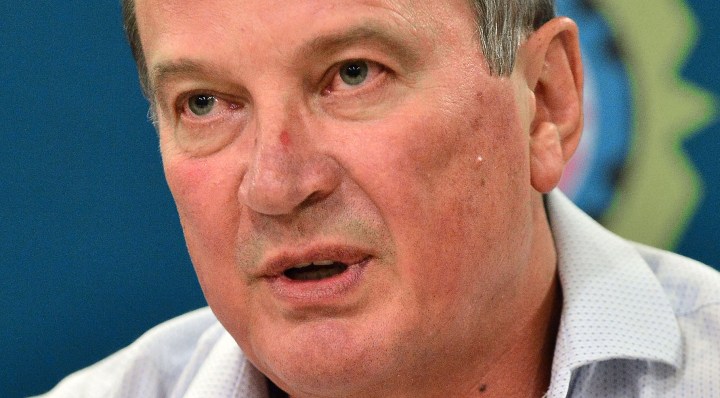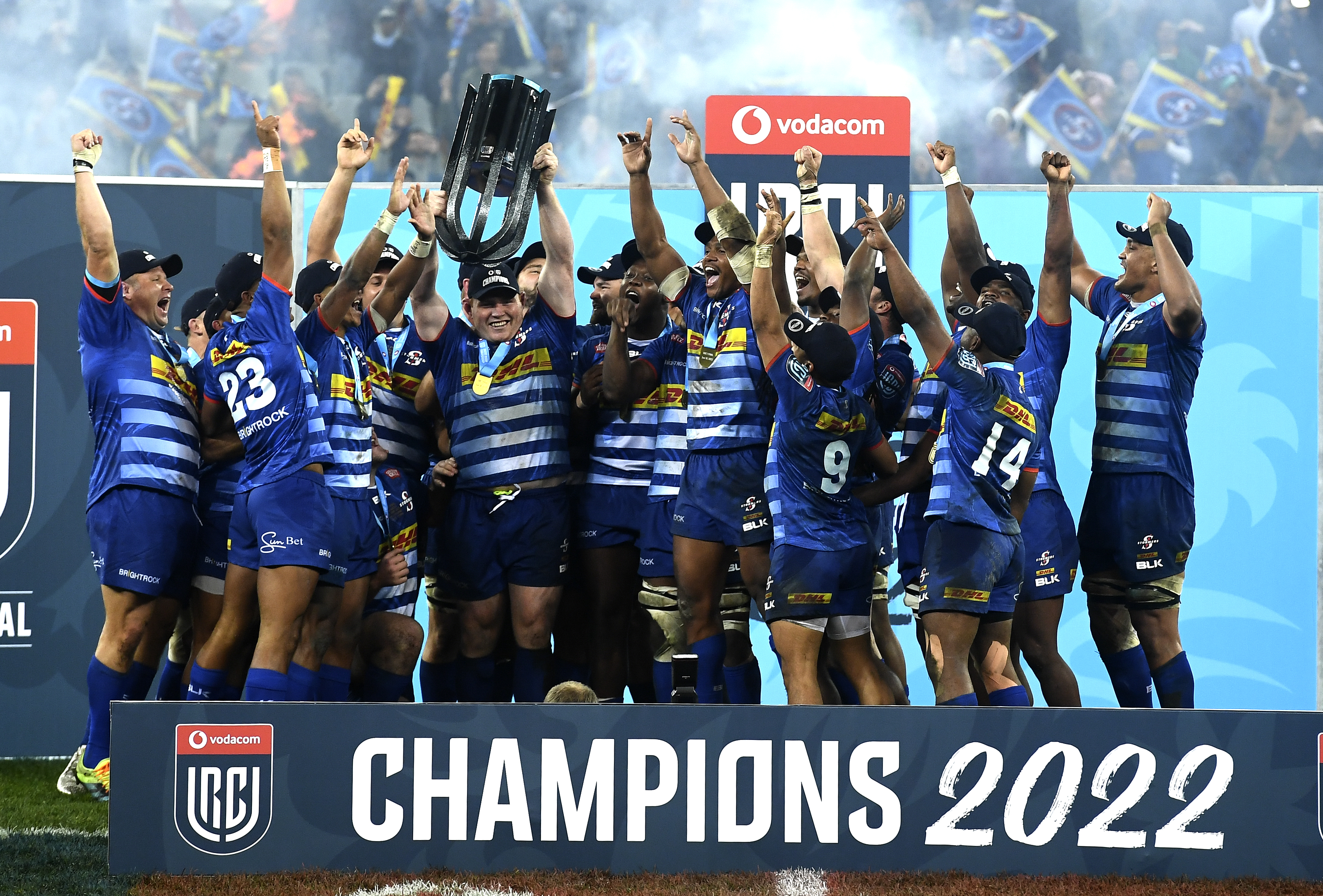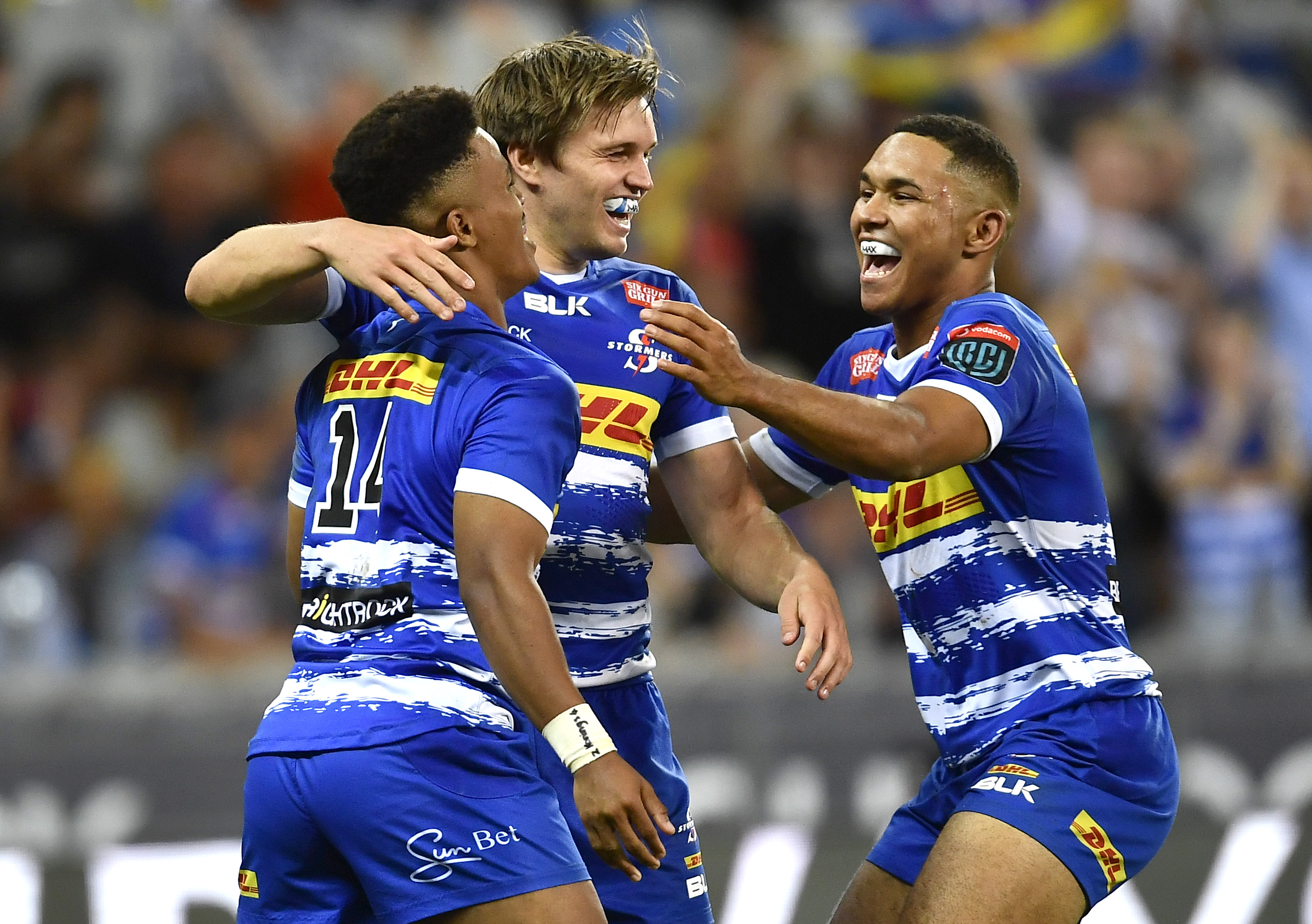FINANCIAL STATEMENT 2022
URC and EPCR participation has cost SA Rugby R330m – but it’s short-term pain for long-term gain

SA Rugby’s 2022 financial statement underlined the difficult economy the sport is operating in as the union declared a modest pretax deficit of R2.62-million.
SA Rugby reports minor deficit despite record income:
- Group revenues reach R1.54bn.
- Commercial interest in Springboks at all-time high.
- Costs of European participation increase to R330m.
- Group pretax deficit of R2.62m reported.
In the greater scheme of things, it’s a minor loss considering the mother body brought in R1.54-billion in the last financial year.
But the costs of participating in European competitions have risen. And the 15 struggling provincial unions continue to rely on disbursements from SA Rugby of more than R285-million, as well as loans of R84.7-million, to stay afloat.
South Africa’s entry into European competition always came at a cost and a risk, and, in the short-term, SA Rugby has had to pay its way into the United Rugby Championship (URC), and the European Professional Club Rugby (EPCR). Those costs, including travel and other related expenses for the Stormers, Bulls, Lions and Sharks, came to R330-million.
Group revenues increased significantly to R1.54-billion (from R1.28-billion in 2021) thanks mainly to increases in broadcasting income (R828-million from R654-million) and sponsorship (R396-million from R222-million).
The increased broadcasting revenues were in part due to the higher value attributed to the 2022 Springbok calendar, featuring a home series against Wales as well as a full Rugby Championship programme.
However, CEO Rian Oberholzer warned that broadcast revenue would be significantly reduced in 2023 in the absence of a touring Test team from the northern hemisphere and a truncated Rugby Championship programme.
Broadcasting revenues were offset against the participation fees being paid by SA Rugby to gain entry to European rugby.
Oberholzer said: “From being a recipient of net income from Super Rugby as a founding member of Sanzaar, we are now a net contributor to European club rugby as our participation costs are on the way to once again becoming a net recipient in the medium term.
“Historically, SA Rugby might net around R160m from Sanzaar. But we are now in a situation where we are having to pay our way into an already established entity.”

Stormers celebrate victory after the United Rugby Championship final match between DHL Stormers and Vodacom Bulls at DHL Stadium on 18 June 2022 in Cape Town, South Africa. (Photo: Ashley Vlotman / Gallo Images)
European rugby essential
Those participation costs – plus the responsibility of bearing the international travel and accommodation costs of the SA teams – amounted to R330m in 2022.
“The continued investment in the URC and EPCR competitions is essential as we carve our way to full membership and shareholding, even though the financial aspect of this pathway is hurting us in the short term,” said Mark Alexander, president of SA Rugby.
“The long-term goal and returns that will come will validate this position, both from financial and high-performance points of view.
“Our participation in the URC and EPCR happened in quick succession and came at a significant cost to SA Rugby, but the commercial opportunities to be realised within the next two to three years will render the competitions profitable and strengthen the financial sustainability of South African rugby.”
The return to full rugby activity in 2022 also resulted in a return to pre-Covid levels of investment in the Springboks and other national teams (R347-million from R280-million).
There were additional camps and Rugby World Cup warm-up matches for XVs and sevens women’s teams, Junior Springbok men’s overseas participation, and Under-18 series participation amongst other investments within the department.
The operational and commercial delivery costs associated with tournament commitments (including the URC and EPCR) also increased from R292-million to R429-million. There was also a significant increase in player insurance and image rights costs, from R73-million to R104-million.

Angelo Davids of the Stormers celebrates after scoring a try during the United Rugby Championship match between DHL Stormers and Emirates Lions at DHL Stadium on 31 December 2022 in Cape Town, South Africa. (Photo: Ashley Vlotman / Gallo Images)
Improved income, thanks to Boks
The expenditure was justified by improved results on the income side, said Oberholzer.
“It is testimony to the success of a winning, transformed Springbok team that the appeal of the team has probably never been higher,” he said.
“The anecdotal evidence supports the theory that the team and sport represent one of the few beacons of hope on South Africa’s troubled socioeconomic landscape.
“To prove the point, nine new companies joined the SA Rugby family in 2022 while another five either renewed, returned or added to their sponsorship portfolio within the sport – the appeal of the team and sport is in good health.”
At provincial level, distributions to SA Rugby’s 15 members accounted for R285-million in expenditure, although a return to pre-Covid levels would only be possible in 2023.
“Each of the last three years has presented fresh and unprecedented challenges that required innovative efforts to resolve,” said Alexander. “At stake was the very future of the game, and, as we have previously experienced during tough times in rugby, it brought out the best in many at the coalface of rugby.
“The future of the game depended on how we responded to the challenges. The pandemic itself might appear to be under control, but the aftermath of it will be felt for years to come. Rugby was not insulated from the devastating financial challenges that resulted from the pandemic and many of those challenges remain.
“Loans to member unions of R84.7-million in the accounts highlights the need to continually address the financial health of the game – as is being required in every rugby federation in the world.”

Boeta Chamberlain of the Cell C Sharks tackling Cornal Hendricks of the Vodacom Bulls during the United Rugby Championship match between Cell C Sharks and Vodacom Bulls at Hollywoodbets Kings Park Stadium on 31 December 2022 in Durban, South Africa. (Photo: Steve Haag / Gallo Images)
Private equity
SA Rugby continues to court private equity firm CVC, to whom they hope to sell a stake in the Springboks for several billion rand. The deal is not finalised.
Aligning with the north, commercially at least, has been the chosen direction by SA Rugby, and for good reason. The northern hemisphere (mainly through Six Nations) creates 64% of the global rugby industry’s commercial value, according to a report presented to SA Rugby members in 2020.
CVC bought a 14.3% stake in Six Nations for a reported £365-million in April 2021. It guaranteed a cash injection of £95-million for the Rugby Football Union (England’s governing body) over the next five years and about half that for the Welsh, Irish, Italian and Scottish rugby unions. France will also receive £95-million.
The Six Nations purchase was CVC Capital Partners’ third acquisition in European rugby, along with portions in URC and the English Premiership, in which it holds stakes of 28% and 27%, respectively.
Alexander said that the role of private equity investors in the sport at national and provincial levels was extremely important and necessary.
“Private equity investment contributes in a significant way to our rugby ecosystem nationally,” he said. “We must ensure that everyone benefits on an equitable basis from our growth as an organisation – and that we don’t kill the golden goose within our franchises in the process.
“It stands to reason that the more we succeed in international competitions, the more marketable we become and the more rugby will benefit.
“We need to address ways to include the private equity structures in our decision-making processes to ensure that everyone has a seat at the table, and always be mindful of how membership is constituted. I am sure we can find a model that will be to the benefit of the greater good of the game.
“Managing the sport’s finances is a daily challenge, but our basic asset – the Springboks and rugby in South Africa – remains a blue-chip resource in the market.” DM
The full annual report for 2022 is available here.



















As with everything in life, sport is now a business where big companies call the shots. Money doesn’t mean a happy life, but without it you can be miserable.